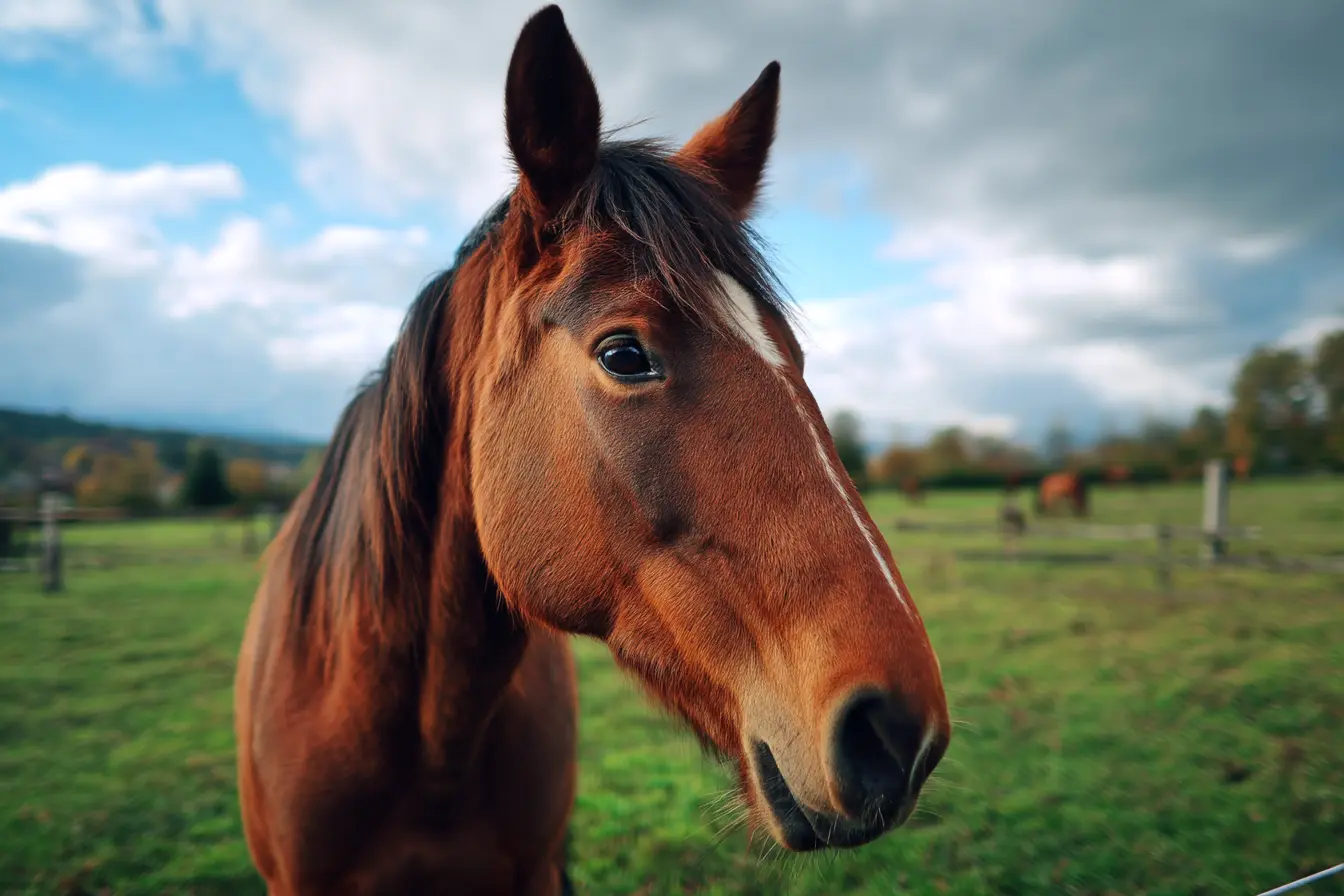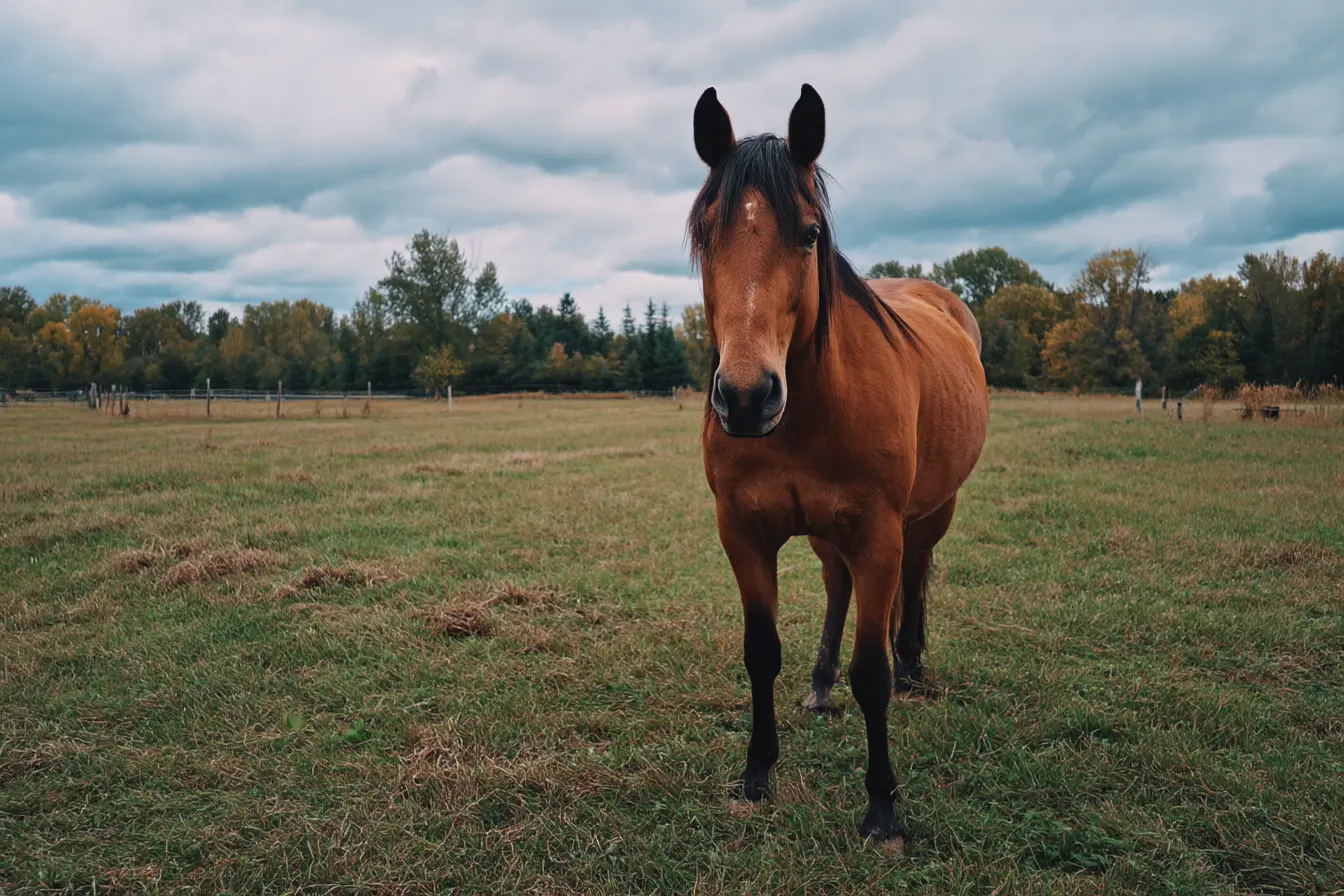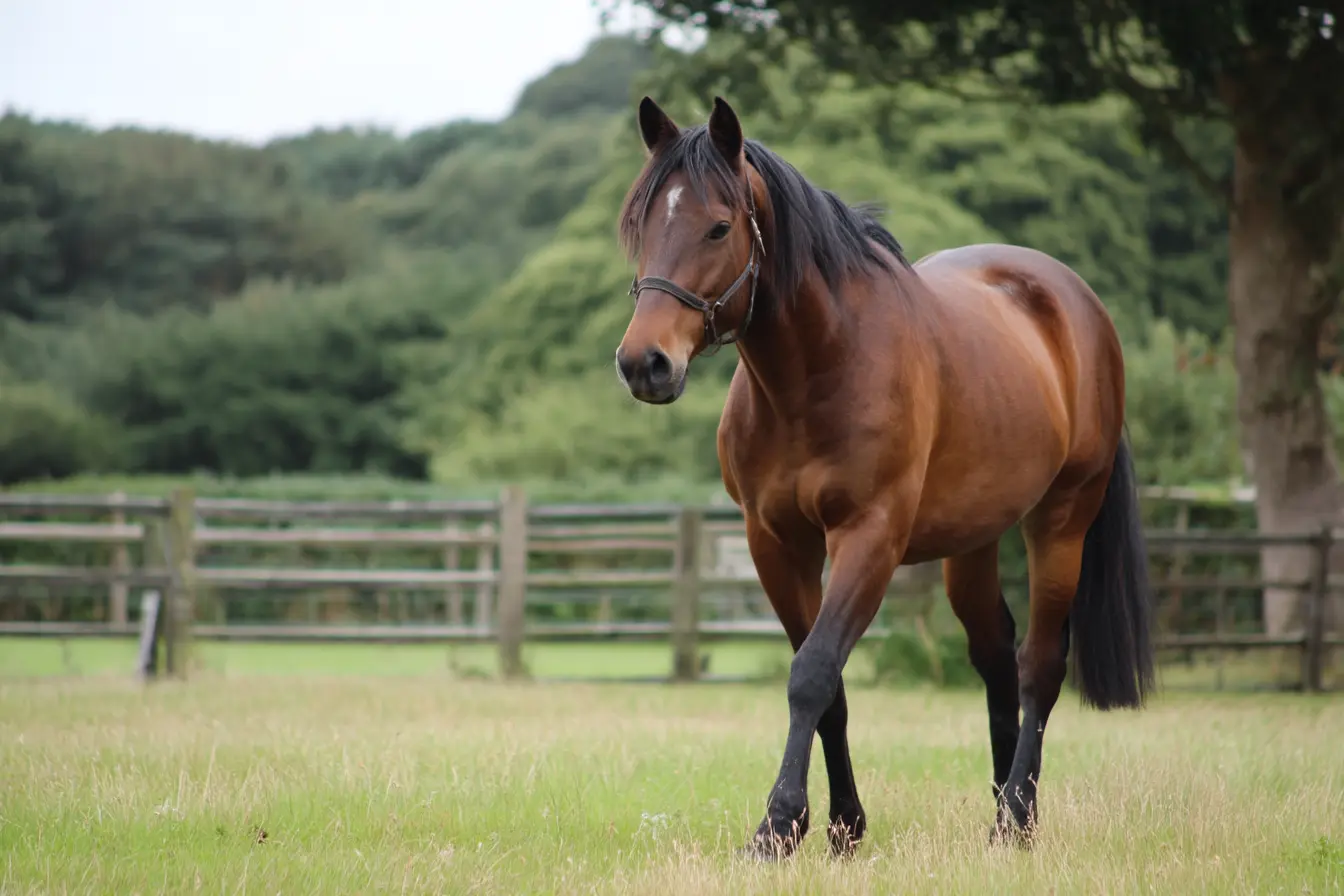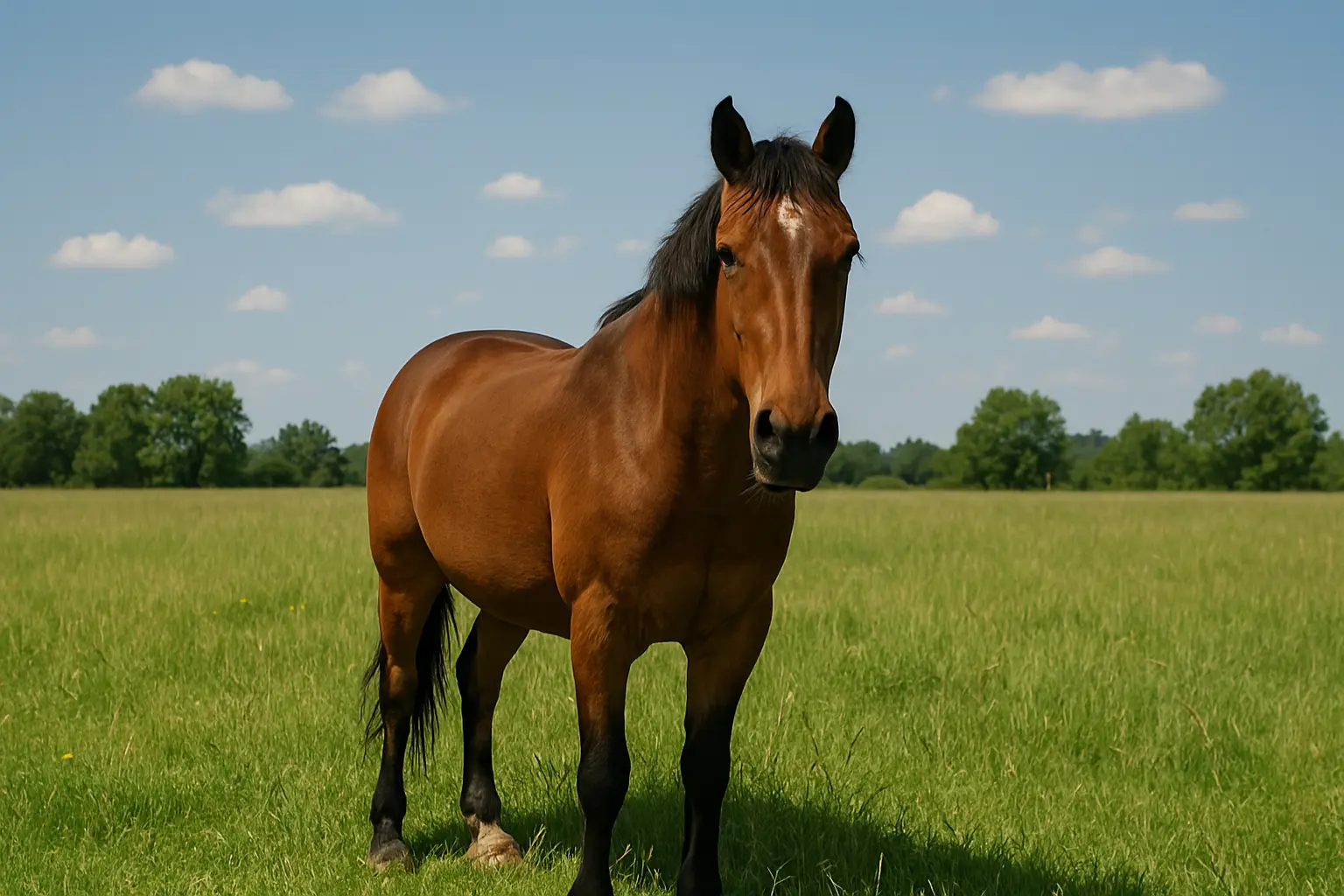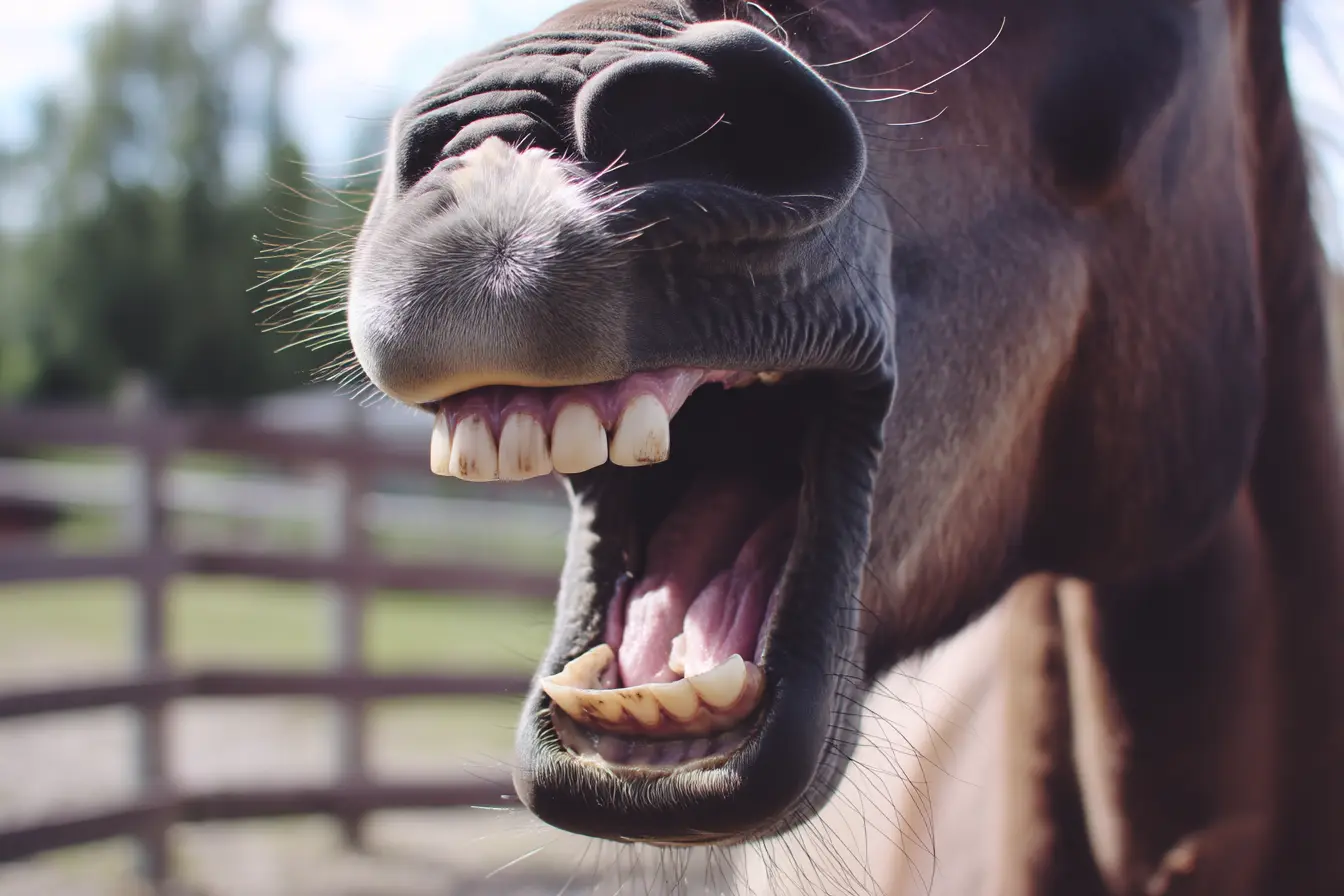
Dental Problems in Horses
Dental health is a vital but often overlooked aspect of equine care. A horse's mouth plays a central role in eating, bit acceptance, and overall comfort. Dental problems can lead to pain, behavioural issues, weight loss, and even colic if left untreated.
Understanding how a horse’s teeth function, the common issues that arise, and how to manage them can significantly improve your horse’s health and quality of life.
How horse teeth work
Horses are herbivores that have evolved to graze for many hours each day. Their teeth are designed for grinding fibrous plant material. Unlike human teeth, a horse’s teeth continue to erupt throughout much of their life—on average, 2 to 3 millimetres per year.
An adult horse typically has between 36 and 44 teeth, depending on sex and the presence of canine or wolf teeth. The key types of teeth include:
- Incisors: used for cutting grass
- Premolars and molars: used for grinding
- Canines: more prominent in males, used in dominance behaviours
- Wolf teeth: small vestigial teeth located just in front of the premolars, often removed due to interference with the bit
The upper jaw is wider than the lower jaw, which can cause uneven wear over time, particularly in domestic horses that eat less abrasive feeds compared to wild grazing.
Common dental problems in horses
Dental problems can develop at any age, but they are especially common in young horses (as teeth are erupting) and older horses (as teeth wear down). Here are some of the most common issues:
Sharp enamel points
Due to the natural unevenness in how a horse chews, sharp points can form on the edges of the molars. These can cause painful ulcers on the cheeks or tongue.
Hooks and ramps
Abnormal chewing patterns can cause overgrowths at the front or back of the molar arcades, known as hooks and ramps. These can interfere with normal jaw movement.
Wave mouth
A wave-like pattern in the molar arcades can develop if certain teeth overgrow and others wear down too quickly. This results in uneven chewing and inefficient grinding.
Step mouth
If a tooth is missing or broken, the opposing tooth may overgrow into the space, creating a “step.” This disrupts the balance of the mouth.
Retained deciduous teeth (caps)
In young horses, baby teeth (deciduous teeth) may not fall out properly, causing pain and interfering with the eruption of adult teeth.
Tooth root abscesses
Infection of a tooth root can cause swelling, sinus drainage, foul odour, or nasal discharge. This often requires x-rays and possible extraction.
Diastema (gaps between teeth)
Gaps can trap food, leading to infection, gum disease, and bad breath. It is especially problematic in older horses.
Broken or missing teeth
Teeth can crack or fall out due to trauma, decay, or age. Missing teeth can lead to overgrowth of opposing teeth and imbalance in the bite.
Malocclusion
Misalignment of the jaw or teeth can be congenital or develop over time. This affects the horse’s ability to chew effectively and can lead to pain.
Signs of dental problems in horses
Some signs of dental issues are obvious, while others may be subtle. Look out for:
- Difficulty chewing or dropping feed (quidding)
- Weight loss or reduced condition
- Bad breath
- Head tilting or tossing when eating or ridden
- Resistance to the bit or unusual head carriage
- Excessive salivation
- Nasal discharge (especially unilateral)
- Facial swelling or sensitivity
- Undigested feed in droppings
Any of these signs warrant a dental examination by a qualified professional.
The importance of routine dental care
Regular dental care is essential to prevent problems before they become serious. Most horses should have their teeth checked at least once a year. Some may require more frequent visits, especially those with existing conditions, elderly horses, or those with poor conformation.
Routine procedures typically include:
- Oral examination using a speculum and light
- Manual and visual inspection of all teeth
- Floating (rasping) to remove sharp points and minor overgrowths
- Monitoring or correction of malocclusions
- Wolf tooth extraction, if necessary
Dental work should be carried out by a qualified equine dentist or veterinary surgeon with experience in equine dentistry.
Dental care for different life stages
Foals
Foals should have their mouths examined early to identify any congenital issues such as overbite or underbite. Retained caps or misalignment should be monitored as permanent teeth emerge.
Young horses
As horses age 2 to 5 years, they go through significant dental changes. Regular checks help ensure baby teeth are shed properly and adult teeth come in correctly.
Adults
Annual dental exams and maintenance are usually sufficient for healthy adult horses. Addressing minor issues early helps avoid more serious problems.
Senior horses
Older horses are prone to tooth loss, wave mouth, and diastema. They may require more frequent dental work and dietary adjustments to ensure they can chew comfortably.
Feeding horses with dental issues
Horses with dental problems may struggle to eat long-stem forage or grains. Adjustments may include:
- Soaked hay cubes or pellets
- Chopped hay or haylage
- Senior feeds formulated for easy chewing and digestion
- Avoiding coarse grains or hard treats
- Feeding from the ground to encourage natural chewing posture
Monitoring body condition and weight is especially important when dental issues affect feed intake.
Behavioural issues linked to dental pain
Unexplained behavioural problems—such as bucking, head tossing, or refusing contact—can sometimes be traced to dental discomfort. Regular dental checks can rule out or address oral pain that may manifest as ridden issues.
Conclusion
Dental health is a cornerstone of your horse’s overall well-being. Regular dental exams, proper maintenance, and prompt treatment of any issues can prevent pain, improve performance, and ensure a longer, healthier life. Whether your horse is a youngster just cutting their first teeth or a senior needing a softer diet, attention to dental care pays dividends in comfort and condition.
If you’re ever unsure whether your horse is experiencing dental problems, consult with a professional—prevention and early intervention are key.
Vets near you
Speciality vets
- Aquatics vet specialists
- Birds vet specialists
- Camelids vet specialists
- Cats vet specialists
- Cattle vet specialists
- Deer vet specialists
- Dogs vet specialists
- Equines vet specialists
- Exotic vet specialists
- Goats vet specialists
- Pigs vet specialists
- Poultry vet specialists
- Sheep vet specialists
- Small Mammals vet specialists
- Wild vet specialists
Vet facilities
- Accessible by public transport
- Blood testing
- Car park nearby
- Client car park
- Dentistry
- Diagnostic imaging
- Disabled public access
- Flea and worm treatments
- Microchipping
- Mobile services
- Neutering
- Open at weekends
- Out-of-hours service
- Referral interests
- Referrals only
- Street parking outside
- Toilets available
- Vaccinations
